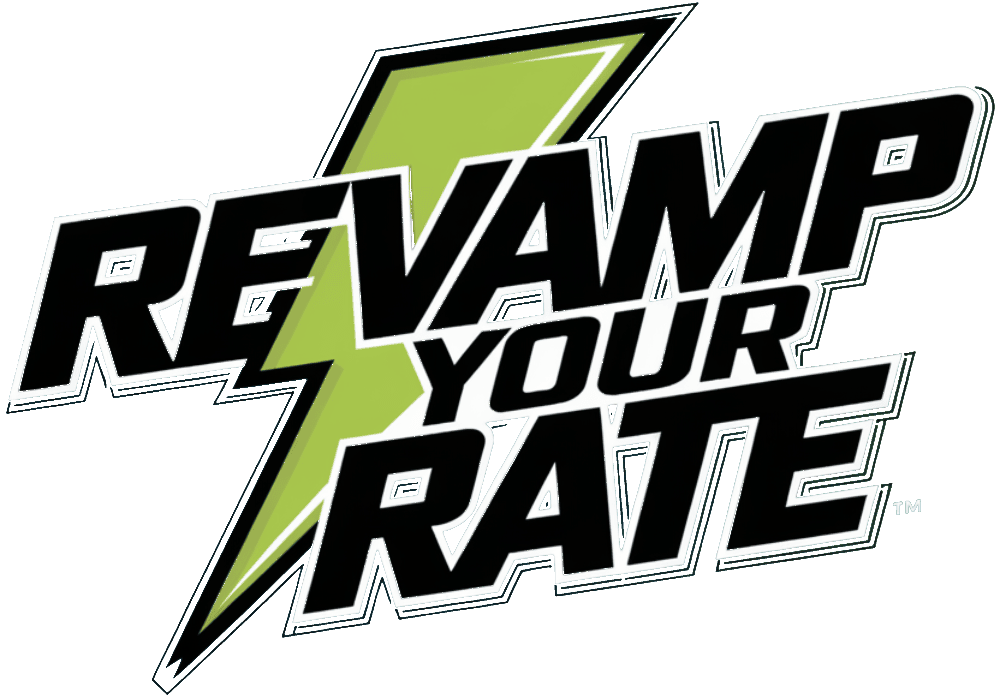Refinancing a mortgage can be daunting, especially for those with a low credit score.
Understanding the minimum credit score required to refinance your mortgage can help streamline the process and make informed decisions.
This article will explore the requirements, options, and strategies available for homeowners seeking to refinance despite their credit challenges.
Benefits:
- Available everywhere except HI, NY, & DC.
- Expert guidance to navigate complex financial decisions.
- Fast, efficient process from application to closing.
- Flexible loan options to fit every lifestyle.
- Personalized support every step of the way.
Benefits:
- Lending in MI, OH, TN, FL, CO, MN, & PA
- Quick responses, so you’re never left waiting.
- Loan Options designed to fit your financial goals.
- Simple Application Process with Clear Communication
- Over 7,000 Five Star Reviews
Benefits:
- Available in CA, FL, GA, IL, MD, PA, and TX
- Expertise & Guidance
- Credit Assistance
- Trust & Transparency
- Affordable Lending Options
What is the Minimum Credit Score Needed to Refinance?
The minimum credit score needed to refinance your mortgage can vary significantly depending on the type of loan you choose.
For conventional loans, lenders typically require a credit score of at least 620.
However, if you’re considering an FHA loan, the minimum credit score requirement can be as low as 580 or even 500 with a larger down payment.
It’s essential to check the specific requirements of your chosen mortgage lender, as each may have different standards.
In either scenario, a higher credit score may enable you to access better refinancing options and lower interest rates, making understanding where you stand before applying crucial.
How to Check Your Current Credit Score
To determine the credit score needed to refinance, you should first check your current credit score. You can obtain your credit report for free from various online platforms and financial institutions, including FICO.
These reports provide a comprehensive overview of your credit history, including late payments, outstanding debts, and credit utilization.
Once you have your report, review it carefully for any inaccuracies or negative marks that may affect your credit score.
Addressing these issues promptly can help improve your credit score and increase your chances of successful refinancing.
Impact of a Low Credit Score on Refinancing
A low credit score can significantly impact your ability to refinance your mortgage.
Lenders often view a low credit score as a higher risk, which may result in higher interest rates or even denial of your refinance application.
You may also be required to pay for private mortgage insurance (PMI) if your credit score falls below a certain threshold. This added expense can make refinancing less appealing, as the potential savings may not outweigh the costs.
Options for Refinancing with Bad Credit
You can refinance a mortgage with bad credit, common options include:
- FHA loans are often a viable choice for homeowners with low credit scores, as they have more lenient credit requirements.
- A cash-out refinance could provide the necessary funds while allowing you to take advantage of any equity in your home.
- VA loan refinance is available to qualified veterans and typically has no strict credit score requirement.
Exploring these refinancing options can help you find a suitable solution for your financial needs.
Conventional Loans vs. FHA Loans for Refinancing
When considering refinancing options for bad credit, it’s essential to understand the differences between conventional loans and FHA loans.
- Conventional loans typically have stricter credit score requirements, often requiring a minimum credit score 620.
- FHA loans cater to borrowers with lower credit scores, requiring a minimum score of 580 for a 3.5% down payment or 500 with a 10% down payment. This flexibility makes FHA loans a more accessible option for those aiming to refinance with bad credit.
Evaluating these loan types can help you choose the best option for your financial situation.
The Role of VA Loans in Refinancing with Bad Credit
VA loans can be an excellent option for refinancing with bad credit, especially for veterans and active-duty service members.
Unlike conventional loans, VA loans do not require a minimum credit score, providing greater flexibility for those with low credit scores.
Additionally, VA loans often have favorable terms, such as no down payment and no private mortgage insurance (PMI). This makes them an attractive choice for those looking to refinance their mortgage while managing bad credit challenges.
If you qualify for a VA loan, it’s worth exploring this option to take advantage of its benefits.
Streamline Refinance Options for Lower Credit Scores
Streamline refinance options, such as the FHA streamline refinance, are designed to help homeowners with lower credit scores refinance more easily.
These programs typically require less documentation and may not require a credit check, making them accessible for those struggling with traditional refinancing requirements.
The streamlined process can lead to quicker approval times and lower closing costs, making refinancing more affordable and manageable.
By exploring streamlined refinance options, you can potentially lower your mortgage payment or access better loan terms despite your credit challenges.
Benefits of Refinancing Your Mortgage
Refinancing your mortgage with bad credit may seem challenging, but it can offer several benefits.
One significant advantage is the potential for lower monthly mortgage payments, which can provide immediate financial relief.
Additionally, refinancing can allow you to switch from an adjustable-rate mortgage (ARM) to a fixed-rate mortgage, providing stability in your monthly payments.
Plus, if you successfully improve your credit score over time, you may have the opportunity to refinance again at a lower interest rate, leading to substantial savings over the life of your loan.
Common Misconceptions About Bad Credit Refinancing
Many homeowners have misconceptions about refinancing with bad credit, leading to unnecessary discouragement.
One common myth is that you can’t refinance unless your credit score is perfect. In reality, various refinancing options are available for those with less-than-ideal credit.
Another misconception is that refinancing will always result in higher interest rates. While a low credit score may lead to higher rates, some programs are designed specifically for borrowers with bad credit, offering competitive interest rates.
Understanding these misconceptions can empower homeowners to explore their refinancing options confidently, no matter their credit situation.
How to Improve Your Credit Score Before Refinancing
If your credit score prevents refinancing, several strategies can help you improve it.
- Start by paying down existing debts, which can lower your credit utilization ratio—a significant factor in your credit score.
- Ensure all your bills are paid on time, as payment history accounts for a large portion of your credit score.
- Consider becoming an authorized user on a responsible person’s credit card, which can add a positive payment history to your credit report.
By implementing these strategies, you can work toward enhancing your credit score, making refinancing more feasible.
Understanding Credit Utilization and Its Impact
Credit utilization is a crucial component of your credit score, representing the ratio of your current credit card balances to your total credit limits.
Keeping your credit utilization below 30% is generally recommended to maintain a healthy credit score.
High credit utilization can signal to lenders that you may be overextended financially, negatively impacting your credit score.
Consider paying off your credit card balances more frequently or requesting a credit limit increase to improve your credit utilization.
By managing your credit utilization effectively, you can significantly enhance your credit score, increasing your chances of successful mortgage refinancing.
Tools and Resources for Credit Score Improvement
Numerous tools and resources are available to help you improve your credit score before refinancing.
Many financial institutions offer credit monitoring services that allow you to track your credit score and receive alerts about changes in your credit report.
Additionally, online platforms provide educational resources on credit management and personalized tips for improvement.
You can also access credit counseling services, which can assist you in developing a strategy to address your debts and boost your credit score.
Utilizing these tools can empower you to take control of your financial situation, making refinancing more accessible.
What Are the Steps to Refinance Your Mortgage?
When you’re content with your credit score and decide that refinancing is the right move for you, you can begin the refinancing process.
Preparing Your Application for Refinancing
Preparing your application for refinancing is a crucial step in the process.
Begin by gathering all necessary financial documents, such as your income statements, tax returns, and a list of your debts.
This information will help your mortgage lender assess your financial situation and determine your eligibility for refinancing. Additionally, ensure that your credit report is accurate and error-free, as discrepancies can cause delays.
Preparing your application thoroughly can streamline the refinancing process and increase your chances of approval.
Required Documents for Mortgage Refinance
When refinancing your mortgage, lenders typically require specific documents.
Standard documents include proof of income, such as pay stubs and tax returns, and information about your existing mortgage, including the loan amount and remaining balance.
You may also need to provide a copy of your credit report and documentation related to any debts you hold. Gathering these documents before applying can make the process smoother and help your mortgage lender evaluate your application more efficiently.
Ensuring you have all the necessary paperwork ready can facilitate a successful refinancing experience.
Choosing the Right Mortgage Lender
Selecting the right mortgage lender is a critical factor in your refinancing journey.
Not all lenders have the same credit score requirements or offer the same loan products, so shopping around for the best options is essential.
Look for lenders specializing in refinancing for bad credit and compare their interest rates, fees, and customer reviews. Additionally, consider seeking recommendations from friends or family who have refinanced successfully.
Choosing a lender who understands your unique situation can enhance your chances of securing a favorable refinancing deal.
How Does the Refinancing Process Work?
The refinancing process typically follows a general timeline, but it can vary based on factors such as your lender and the complexity of your application.
Generally, the process begins with submitting your application and providing the necessary documentation.
Once your application is reviewed, the lender will order an appraisal of your home to determine its current value.
After that, you may undergo a credit check, and if everything is in order, you can receive a loan offer.
The entire refinancing process can take anywhere from a few weeks to a couple of months, so staying informed and patient is essential.
What to Expect During a Credit Check
During the refinancing process, a credit check is an essential step. Lenders will review your credit report to assess your creditworthiness and determine the terms of your loan.
It’s important to note that a hard inquiry may occur, which can temporarily lower your credit score. However, this impact is typically minimal and short-lived.
Your credit check will reveal your credit score, payment history, and outstanding debts, influencing your refinancing options.
Being prepared for this step can help you understand how your credit profile affects your ability to refinance.
Closing Costs and Fees Associated with Refinancing
Closing costs and fees are essential considerations when refinancing your mortgage.
These costs can vary depending on your lender and the specifics of your loan, typically ranging from 2% to 5% of the loan amount.
Common fees include appraisal, title search, insurance, and attorney fees. You may also encounter lender fees, such as origination or processing fees.
Understanding these costs upfront can help you budget for the refinancing process and avoid surprises at closing.
It’s also worth inquiring whether you can roll closing costs into your new loan, making refinancing more affordable.
The takeaway: Can you refinance your mortgage with bad credit?
Refinancing your mortgage is entirely possible with bad credit.
However, research will be required into the right loan options for your situation. You’ll also want to find a lender with experience and offerings for those with low credit.
Improving your credit score is also recommended before any financial moves, but there’s no reason to be discouraged if your score isn’t where you want it to be when you refinance.
Our advise is based on experience in the mortgage industry and we are dedicated to helping you achieve your goal of owning a home. We may receive compensation from partner banks when you view mortgage rates listed on our website.






